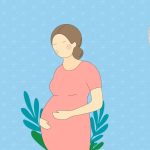Bathsheba Nerus has always had a knack for personal growth and the development of her society. She does this by volunteering her skills to non-profits impacting communities and people around her.
In November 2021, during a field trip to the Kulgul community in Gombe State, she and her coursemates faced the challenge of finding clean drinking water. Witnessing this struggle firsthand, she made a heartfelt personal commitment to take meaningful actions in order to provide assistance to the community.
Nerus, then still an undergraduate at the Gombe State University, was earlier selected into the ‘Young Women’s Political Mentorship Program,’ a program that equipped young girls with community mobilization and leadership skills.
As part of this program, each mentee was required to initiate a community project to put their acquired knowledge into practice.
Nerus’s challenges in accessing clean water during the trip allowed her to understand the hardships the people of Kulgul face.
Kulgul, nestled under the administration of Billiri Local Government in the southern region of Gombe State, is a small community inhabited by the Tanglang clan. Regrettably, this community has remained largely untouched by progress and development initiatives.
Even before Nerus’ idea to help the community get water, the residents had grappled with the harsh reality of inadequate access to clean and reliable water sources for their daily routines and personal cleanliness.
With a population of roughly 5,000 individuals, the community’s sole water source stemmed from an artificial pond. Particularly affecting women and children, the community members would rise early each morning, hurrying to procure water.
This ordeal saw these individuals standing in lengthy queues for hours, hoping to obtain water that flowed sporadically and was far from sanitary. The arduous endeavour persisted for years, subjecting them to unclean water that proved challenging to get and exposed them to an array of waterborne diseases.
Taking action
Nerus’ experience in this kind but the deprived community made her promise herself that she would do whatever she could to help them get water.
For a start, she chose to post about the state of the community on her Facebook, and the result was instant and surprising for even her.
“I got recommendations, while others reached out. They include reputable men from the community, Tracka, a House of Reps member, my female political mentors and a Journalist from African Prime News, who later published the whole story,” she said.
In January 2022, Nerus returned to the community with a representative of Tracka, a non-profit that tracks government projects, and they met with the communities to inform them of plans to carry out advocacy to get them water.
Recognizing her dedication, they extended a helping hand by offering to liaise with individuals in authoritative positions. Additionally, the district head presented her with a formal letterhead in support of her cause. This endeavour garnered further attention when Tracka, an advocacy platform, published a story to raise awareness about the initiative.
Leveraging her presence across various dynamic platforms, Nerus tapped into additional engaging avenues to seek out assistance and generate support for her cause.
“I was on an unpaid internship at Vision Radio, Gombe, and during the program, I co-presented a show called ‘Lunch Box’. There were frequent announcements and advocacy on the issues,” she added.
The Support she got from meetings and comments from her posts was insufficient. Nerus needed action and funding from the people she had consulted, but nothing came forth.
“I reached out to more than four well-meaning individuals of the community, including elected representatives. But I got low responses and complaints such as; the water level is low, and there are water projects already in existence.”
“I was unable to reach the Chairperson of Local government, I met with the APC chairman during an advocacy visit, and he gave his word to help anytime I needed it,” she explained.
Nerus, still upright on her toes, kept on with the media advocacy.
At some point, Nerus hit a brick wall-they were rumours that her advocacy was sponsored by opposition political leaders who wanted to score political points, forcing her to restrategize. “It was frustrating that I had to start over again,” she said.
Nerus got the community leaders to issue a letter stating that her work was not a “threat but an act of community service,” she told Prime Progress.
Pressing on and leaving a mark
Patience and hope became companions for Nerus as she summed up the little results she got from the call for funds, but she didn’t give. She would speak to anyone about the project and continues to give updates on social media.
Soon enough, the Hope Springs Foundation, a foundation focused on empowering marginalised communities under the management of Rambi Ayala, a former deputy minority leader at the Gombe State House of Assembly, reached out to her, asking that they wanted to see her.
“I reached back to the community, and as a moral support, the district head sent two men and a woman as representatives from the community to the meeting.”
At the meeting, the foundation “said they would be willing to help the Kulgul community with water if I submitted survey results.”
Nerus helped the community to mobilise and raise the thirty thousand Naira needed to carry out the survey.
And she finally breathed a sigh of relief when the survey for five locations was placed on Ayala’s desk on March 31, 2022. A team of experts also visited the community for interviews, data collection and assessments on April 5, 2022, and a location called Pobariki was selected.
On June 1, 2023, the drilling process of the borehole commenced, and by June 4 2022, the people of Kulgul had a clean source of water setup by Hope Springs Foundation.
A look from before and After
Danladi Magaji, the District Head of Kulgul, told Prime Progress that the community remains grateful for all the effort that went into ensuring that they have clean water.
“We went through a lot with the issue of this water. The place available for us to get water usually dried up during the dry season. It was the most difficult time for us,” the 60-year-old said.
Magaji explained how unhealthy they had been living, not by choice but by circumstance, and thankful that things have now changed.
“I praise the effort of Bathsheba. She started this and made sure it happened. I will say that she has made me proud. The people of the community now have a place to go to for clean and usable water,” he said.
Also, Hezron Umaru, 34, a farmer in the community, said before the borehole was dug, they depended on a well that was only reliable during rainy seasons.
“There was no water for domestic use before, but the borehole has elevated the situation. Now the community can use both rainfall and the borehole water,” he said.
Looking back, Nerus is grateful to have played a role in helping this community and insists that she feels energised to help light up her part of the world, one place at a time.
Bathsheba Nerus, dedicated to personal and community development, encountered the severe water scarcity in the Kulgul community during a field trip in November 2021. This motivated her to take serious action. She was a participant in the Young Women's Political Mentorship Program, which required initiating community projects.
Nerus witnessed Kulgul's roughly 5,000 residents struggle to access clean water from an unreliable, artificial pond. Women and children faced long, unsanitary waits for sporadic water supplies, exposing them to numerous waterborne diseases. She started by raising awareness through social media, attracting attention from various notables and organizations.
In January 2022, Nerus, with Tracka, a non-profit organization, initiated advocacy efforts. Despite initial setbacks, including suspicion of political motives and lack of immediate financial support, she persisted. A breakthrough came when Hope Springs Foundation agreed to assist if a survey was conducted.
By March 31, 2022, funding was secured for the survey, and drilling commenced on June 1, 2023. By June 4, 2023, Kulgul had a new borehole providing clean water, significantly improving the community's living conditions. The community leaders and residents, like District Head Danladi Magaji, expressed immense gratitude for Nerus' unwavering efforts. Her work demonstrates the power of dedicated community service in bringing about substantial change.






